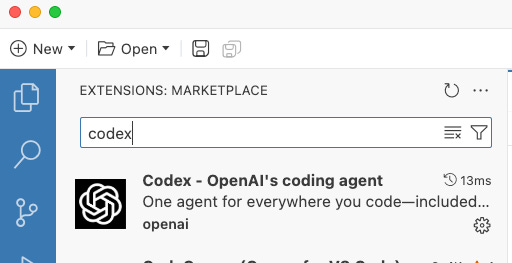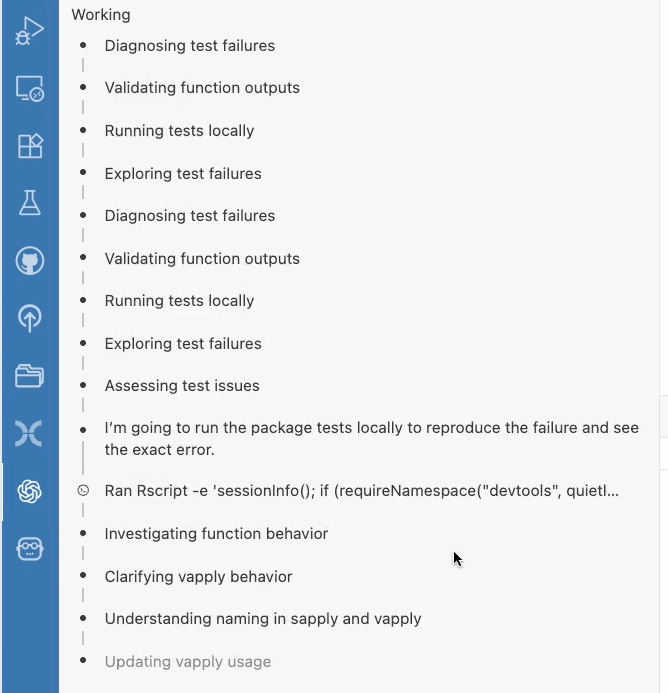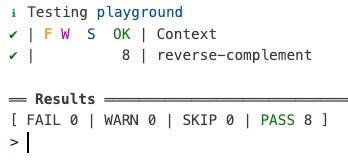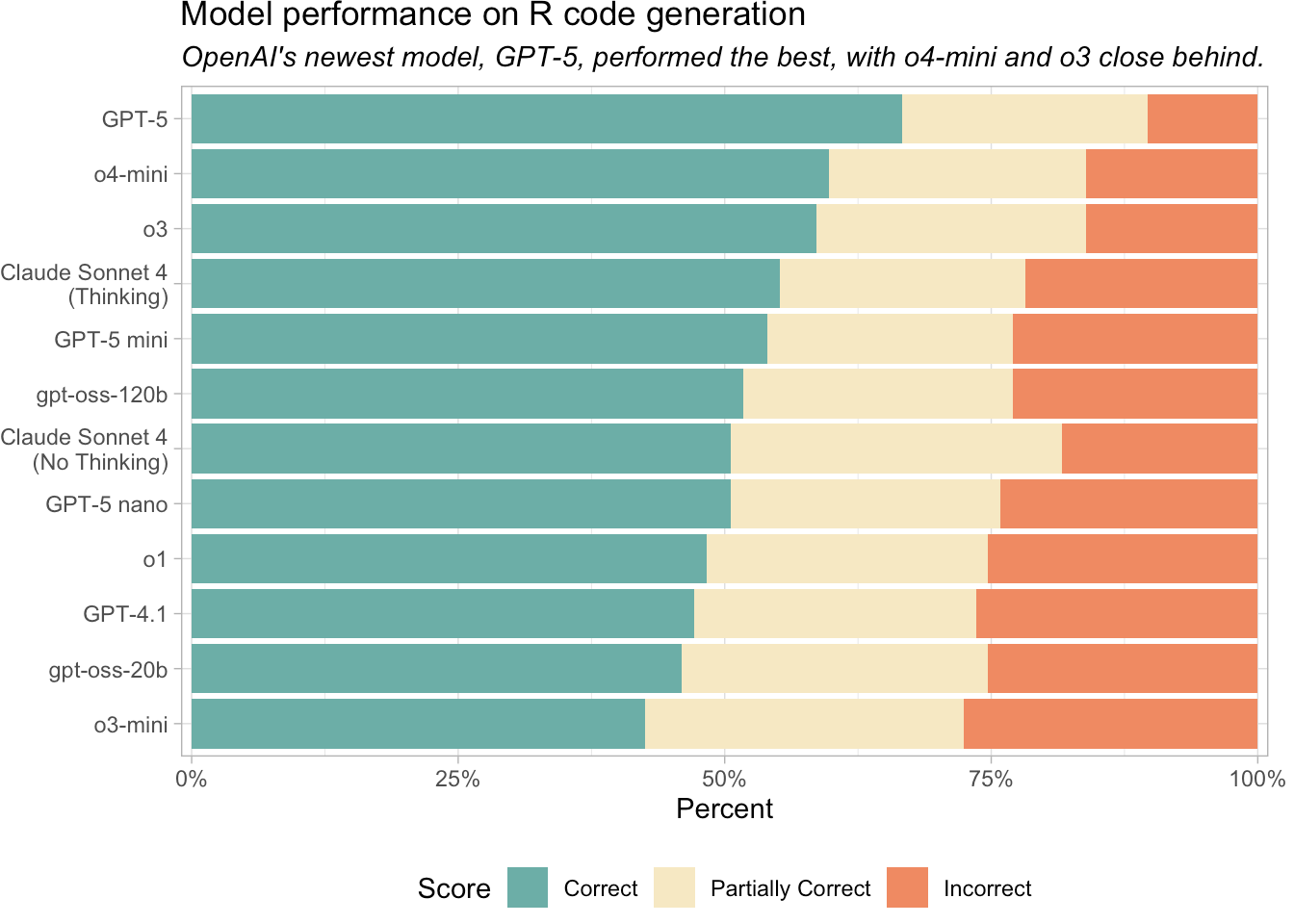Using OpenAI Codex in Positron
Developing an R package using the OpenAI Codex agent in Positron
Last month I wrote about agentic coding in Positron using Positron assistant, which uses the Claude API on the back end.
Yesterday OpenAI announced a series of updates to Codex, the biggest being an IDE extension to allow you to use Codex in VS Code, Cursor, Windsurf, etc. More details at developers.openai.com/codex. And Codex is available in the Open VSX Registry, meaning you can install it in Positron.
Demo: creating an R package with Codex
I tried doing the same thing here with Codex as I did with Positron Assistant in the previous post. I used usethis::create_package() to give me a basic package skeleton, then I fired up Positron, hit the Codex extension in the side panel, and gave it a simple prompt.
write a simple function in this R package to reverse complement a DNA sequence (i.e. A>T, C>G, G>C, T>A). Document it with Roxygen, and write unit tests with testthat. Do not add any external package dependencies other than testthat.
Then I sat back and watched it work.
As you can see, after running devtools::document() and devtools::test(), my tests failed. I asked Codex to fix those tests. I had to do this twice, and the second time around it’s running those tests locally and diagnosing what’s happening.
The third time around all my tests pass.
And devtools::check() yields no errors, warnings, or notes.
The code is on the same GitHub repo, on the codex branch.
Why Codex instead of Positron Assistant?
I haven’t used either agent enough to know their failure modes, and which might be better in certain circumstances. As of last week, GPT-5 seems to outperform Claude for writing R code, and Codex uses GPT-5 under the hood.
Another factor might be cost. Instead of using API credits, Codex uses your existing ChatGPT Plus, Team, Pro, Edu, or Enterprise subscription. In my post on Positron Assistant I showed that the entire package development experiment (admittedly simple) cost about $0.09 cents. But if you’re relying on this daily and using it for heavier tasks, you might run up a decent bill. If you’re already paying $20/month for ChatGPT Plus, using Codex doesn’t cost you any more.
Finally, there’s the original selling point behind Codex before it was ever available in an IDE: You can wire up Codex to your GitHub account and ask Codex to read, write, and execute code in your repositories to answer questions or draft PRs. I haven’t tried this yet, but you can read more at developers.openai.com/codex/cloud.






